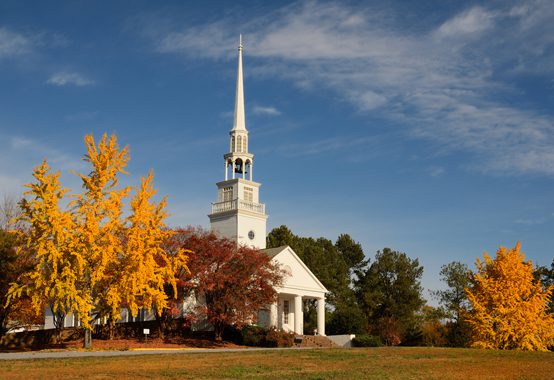Christianity Without Orthodoxy

Gene Fant highlights the Southern memoirist William Alexander Percy’s 1941 observation about the decline of Christianity in the South. Percy, who was the famed uncle of the novelist Walker Percy, said that theological words and concepts fell on deaf ears; what the church needed to do to reach the young was offer them a sense of community. Fant says:
For Percy, the cultural religion had grown fallow and empty, and his solution was the exchange of theology for morality, a devil’s bargain if there ever were one but one that still finds buyers throughout the religious world who are sheepish around any sort of restraining forces beyond their own sensibilities. The bulk of our age’s criticisms of the church seem to seek the same end. The answer, of course, is not a swap but an integration of sincerely pursued righteousness grounded in rigorous orthodoxy, a tougher sale to be sure.
This brought to mind a conversation I had recently with a new friend, a bright, generous, and altogether superb young Millennial who is active in his church. Our group got to talking about the church, and doctrine; someone there (not this young man) said that he didn’t understand why so many churches had to be “exclusive.” I brought up that every church is exclusive at some point; it’s just a question of where the lines will be drawn. I raised the real-life example of a church in our part of the world whose pastor left after many in that church (this was back in the early 1980s) criticized him for inviting the child of his black maid to Vacation Bible School. All of us in our group agreed that we would have left that church with the pastor if we had been part of the congregation.
The young man said that he agreed with much of the teaching his pastor proclaimed, but not all of it. “Besides,” he said, “I’m not really in it for the doctrine. We’ve got a great community at our church.”
This makes sense to me at one level. For most of my life, I’ve been more interested in doctrine than community, but doctrine is not going to fill your refrigerator with food when you’re too sick to get out of bed, and doctrine is not going to pray with you when your wife leaves you for another man. Et cetera. I get that now.
But I still don’t understand how people who emphasize the communal aspect of a church find solid ground to stand on if not for doctrine. How do you decide right from wrong on a controversial church teaching? An Episcopalian in our group argued for a broad standard of tolerance, which is fine, but at some point, the community has to stand for something more than itself. Right? What then? How do you determine that now is the time for you to stay when a divisive issue comes up in the church community, or when the line has been breached, and your understanding of truth requires you to leave on principle? If what the community decides as a democracy is to exclude black people from the congregation, on what grounds would you say that this is not only wrong, but so wrong that you can’t remain part of that community?
We were not going to solve the question of how you determine right doctrine (orthodoxy) that night, nor did we try to. That conversation came to mind when I read Fant’s blog entry about W.A. Percy. It seemed to me that I was the only member of our group — all of us churchgoing Christians — who thought about orthodoxy at all (and by the way, our group consisted of Boomers, Xers, and Millennials). We are so accustomed in our culture to not applying reason to religious experience, to only thinking of it in terms of emotional resonance, that to draw those lines seems somehow, well, un-Christian to many.
How any religion survives the loss of a sense of the need for orthodoxy, I don’t know. I guess we’ll find out.
Subscribe for as little as $5/mo to start commenting on Rod’s blog.